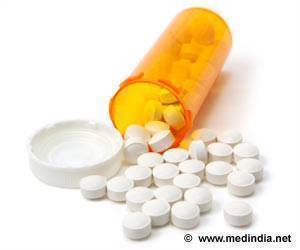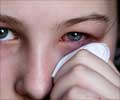
"Without urgent, coordinated action by many stakeholders, the world is headed for a post-antibiotic era, in which common infections and minor injuries which have been treatable for decades can once again kill," warned Keiji Fukuda, the WHO's assistant director-general for health security.
Antibiotics have enabled people to live longer, healthier lives and benefit from medical advances, but this is now under threat, Fukuda said in a statement.
"Unless we take significant actions to improve efforts to prevent infections and also change how we produce, prescribe and use antibiotics, the world will lose more and more of these global public health goods and the implications will be devastating," he said.
The WHO combed through data from 114 countries in the study.
It focused on seven different bacteria responsible for common, serious diseases such as sepsis -- bloodstream infections -- diarrhoea, pneumonia, urinary tract infections and gonorrhoea.
Advertisement
- Spectre of E.Coli, gonorrhoea -
Advertisement
Known as K. pneumoniae, it is a major cause of hospital-acquired infections such as pneumonia and sepsis, often hitting newborns and intensive-care patients.
Resistance to fluoroquinolones, one of the most widely used antibacterial medicines for the treatment of urinary tract infections caused by E. coli, is also widespread.
Resistance was virtually zero when the drugs were introduced in the 1980s, but now hits half of patients in many part of the world, the WHO said.
The problem is a particular concern in Africa, the Americas, South and Southeast Asia, and the Middle East.
Resistance to third-generation cephalosporins -- the last resort for tackling gonorrhoea, which infects more than a million people every day -- has been confirmed in Austria, Australia, Britain, Canada, France, Japan, Norway, South Africa, Slovenia and Sweden.
Antibiotic resistance also has a knock-on effect by causing people to be sick for longer and making them more likely to die, the WHO said.
A case in point is MRSA -- methicillin-resistant Staphylococcus aureus -- which has grabbed headlines due to a rash of outbreaks at hospitals.
Patients with MRSA are 64 percent more likely to die than those with a non-resistant form, the WHO said.
In parts of the Americas, resistance to MRSA treatment had reached 90 percent, while levels of 60 percent were seen in Europe, the study found.
Resistance also raises health costs because of longer hospital stays and more intensive care.
Efforts to tackle antibiotic resistance have lagged behind its growth, the WHO said, flagging weak or totally absent monitoring in many countries.
It urged policymakers to raise their game by strengthening resistance tracking and laboratory capacity, and by regulating and promoting appropriate use of drugs.
They should also do more to stop infection in the first place, with better hygiene measures, access to clean water, infection control in health-care facilities, and vaccination, to reduce the need for antibiotics, it said.
Health workers and pharmacists can help tackle resistance by boosting infection prevention and control measures, by only prescribing antibiotics when truly needed and by ensuring the right drugs are given.
The medical and pharmaceutical industry should step up efforts to develop new diagnostics, antibiotics and other tools to allow the health sector to stay ahead of emerging resistance, the WHO said.
Patients, meanwhile, should only use antibiotics when prescribed by a doctor, complete their treatment even if they feel better and never use leftover drugs, it said.
Source-AFP













